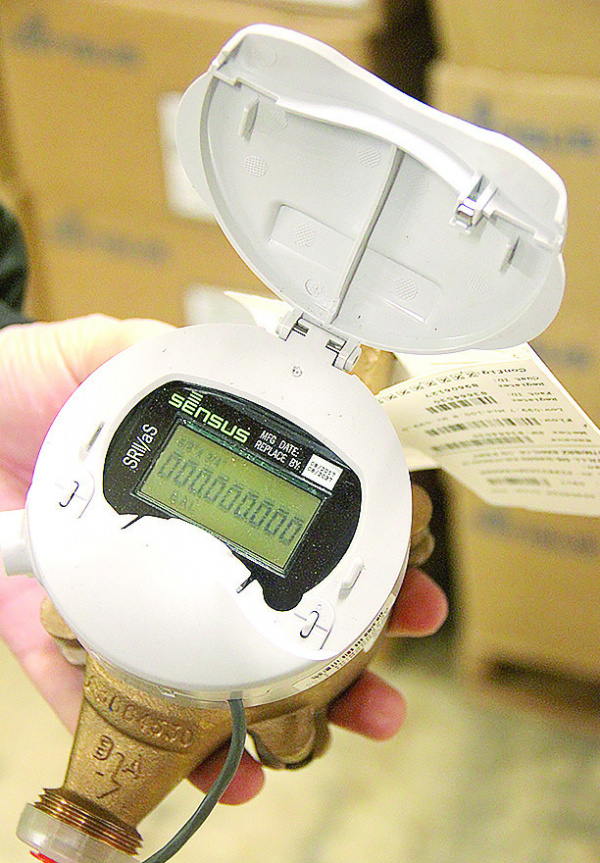City adjusting water charges in face of ‘tsunami of issues’

Advanced metering nodes were installed in the city in 2018 to cut down on errors. Leader file photo
The city of Ruston is adjusting charges for its 10,000 water customers and rescinding the rate increase that went into effect Jan. 1 because of what Mayor Ronny Walker calls a “tsunami of a lot of issues” that caused some bills to be 10 times higher than normal.
“We know this is our fault,” Walker said Friday.
Customers who have already received their bills will get a credit on their February statement equal to the water charge that was on their January bill. Customers not yet billed will have no water charge on their forthcoming statement.
The adjustments affect only water charges. Walker said the problems are fixed and that meter readings taken in January were “100% correct.”
What led to the inflated water bills was a confluence of three things: manpower, meters not being read, and equipment failure.
The situation dates to the fall of 2017 when the city contracted with Cooper Eaton to install advanced metering infrastructure nodes on all 10,000 residential and commercial meters.
The nodes were supposed to have significantly decreased the margin for error for misread meters. Installation began in January 2018.
The AMI technology includes smart meters that communicate billing information directly to the utility billing department, instead of having meter readers.
Consequently, over the next several years, the city downsized its seven-person meter reading department and didn’t replace antiquated handheld meter reading equipment.
The $2.5 million AMI project was part of the Moving Ruston Forward initiative.
But the nodes began to fail at random places around the city.
Cooper Eaten put in new nodes, but within six months, they began to fail again, Walker said. New nodes were put in a second time, and they, too, failed, he said.
Cooper Eaton continued to assure the city the situation would be fixed in short order, officials said.
But the nodes continued to fail. The city was on the verge of suing the company when it reached an agreement whereby Cooper Easton would replace all the nodes and give a three- year warranty.
That agreement hasn’t been signed.
In June and July of 2022, the city’s customer service department began getting calls about water bills.
“So, we started checking into it and realized there was estimating ( usage) taking place,” Walker said.
At first, the problem appeared spotty. That’s why city officials didn’t consider addressing the issue publicly at the time, Walker said.
But the high failure rate of the nodes forced the few remaining meter readers to go back to the outdated handheld equipment. Some readings were estimated based on prior year consumption rather than actually being read.
The city hired more meter readers and ordered new equipment.
“But because of the supply chain issues, it took us four months to get the equipment,” Walker said.
The new handheld readers arrived in late December.
By then the problem had widened.
“Our customer service area was getting inundated with calls. That’s what brought it to our attention,” Walker said. “In the last three months it really came to light because of the sheer number.”
It wasn’t until January that the new handheld readers were used. That’s because they weren’t compatible with the city’s old financial software. The city was already in the process of upgrading the software when the new readers arrived. That process had to be finished before the new readers worked.
Now the city’s in the midst of a comprehensive meter reading effort to ensure accuracy.
Usage is no longer being estimated, the mayor said.
“It’s fixed,” he said.
Category:





